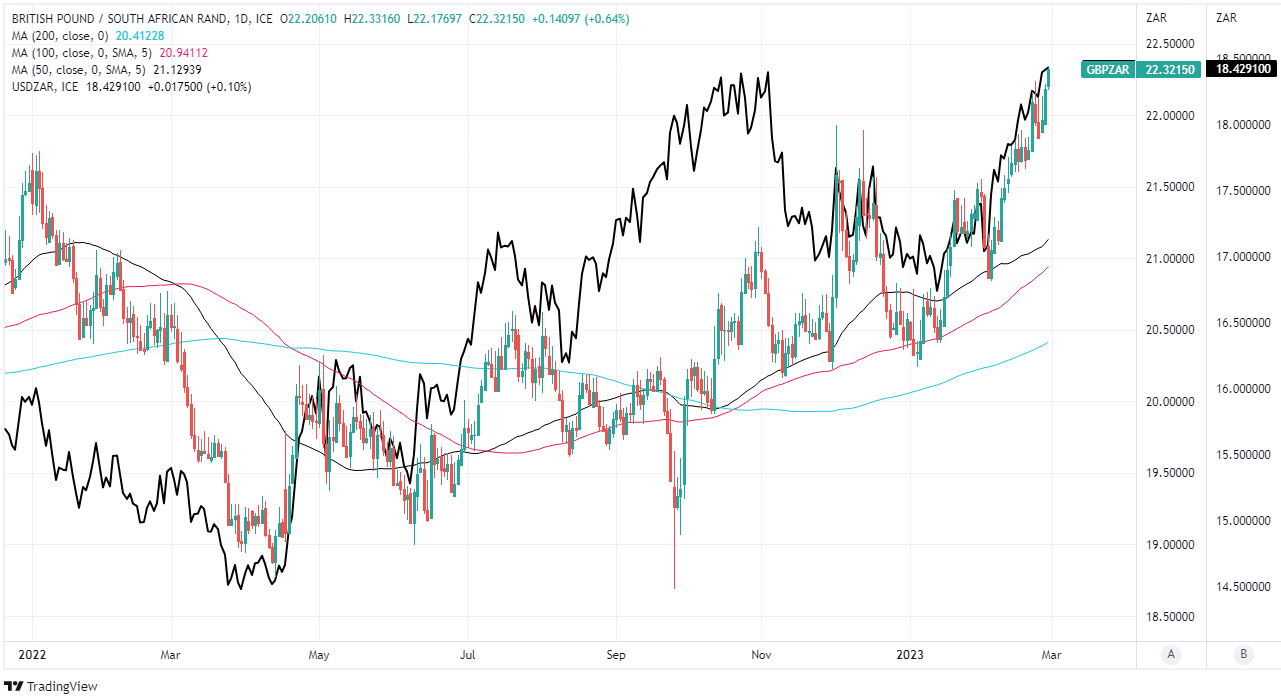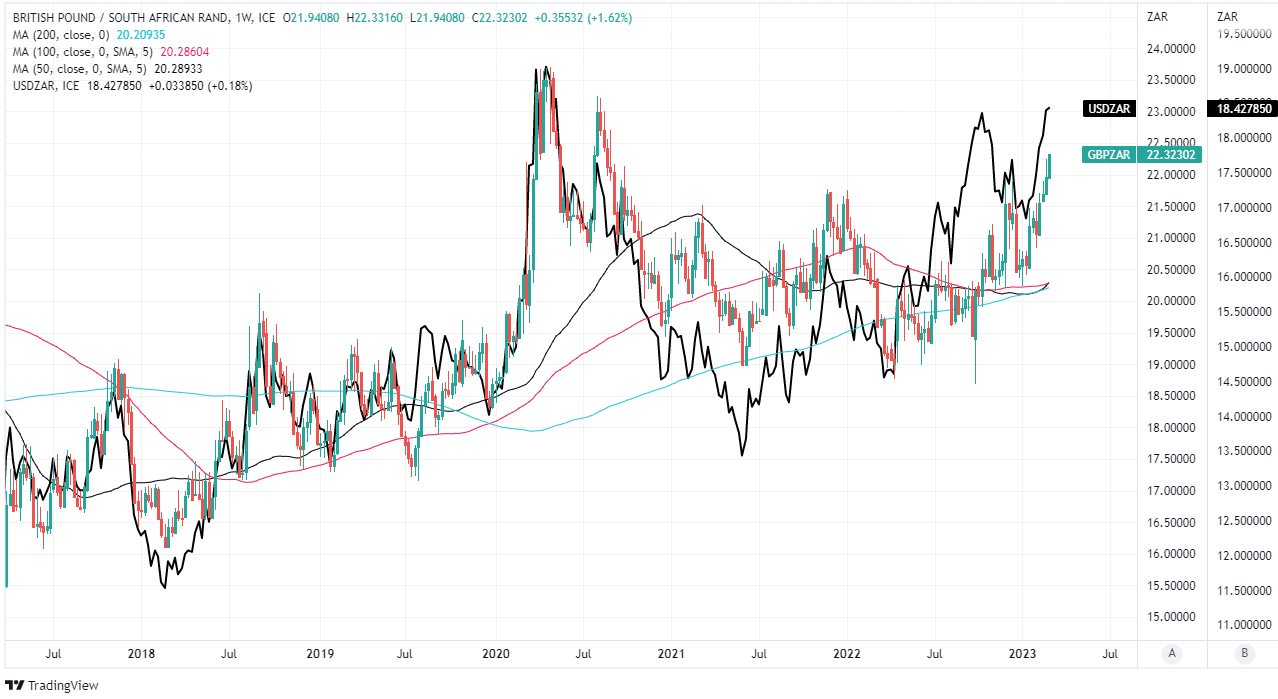Pound to South African Rand Rally Extends On Sterling, Dollar and Data Risks
- Written by: James Skinner
"The rand will remain highly vulnerable to events in global financial markets, and movements in the USD have also been instrumental in its weakening trajectory" - Investec.

Image © Adobe Images
The Pound to South African Rand exchange rate was lifted by a tripartite of favourable influences early this week and might have scope to edge higher still but much depends on if Sterling and the Dollar remain on their current trajectories as well as on what comes out of the U.S. economic calendar.
Sterling climbed across the board in the opening sessions of the new week before notching 15-month highs against the Rand on Tuesday despite a surprise increase in the South African trade surplus being announced for January along with a further decline in the local unemployment rate.
South Africa's unemployment rate slipped from 32.9% to 32.7% in the final quarter, Statistics South Africa data showed on Tuesday, while private sector credit creation and the M4 money supply were said to have increased notably during the opening month of the new year.
"In South Africa, last week’s budget presentation was positive for SA assets, in our view," says Marek Raczko, an FX strategist at Barclays.
"ZAR, however, remains under pressure due to USD strength and we expect this trend to continue this week," Raczko adds in Monday commentary.
 Above: Pound to Rand pair shown at daily intervals alongside USD/ZAR. Click image for closer inspection.
Above: Pound to Rand pair shown at daily intervals alongside USD/ZAR. Click image for closer inspection.
Sterling remained on the front foot on Tuesday while the Dollar was also higher almost across the board following another display of U.S. economic resilience in the form of a surprise increase in core durable goods orders figures for the January month.
International asset prices were, meanwhile, still nursing losses sustained in the wake of Friday's shock increase in the Core Personal Consumption Expenditures Price Index and will likely be responsive to the pending flurry of other U.S. economic numbers due out in the days ahead.
These include trade balance numbers as well as Institute for Supply Management (ISM) PMI surveys of the manufacturing and services sectors, which are interspersed with remarks from multiple members of the Federal Open Market Committee.
"The interest rate differential between the Fed’s funds rate and SA’s repo rate has fallen as US interest rates have risen, with SA not keeping up with the total size of the US hikes," says Annabel Bishop, chief economist at Investec.
"The rand will remain highly vulnerable to events in global financial markets, and movements in the USD have also been instrumental in its weakening trajectory," Bishop writes in a Tuesday research briefing.
 Above: Pound to Rand pair shown at weekly intervals alongside USD/ZAR. Click image for closer inspection.
Above: Pound to Rand pair shown at weekly intervals alongside USD/ZAR. Click image for closer inspection.
There is little else of note in the local calendar for the week though the Rand and other currencies are likely to remain sensitive to anything that further widens interest rate differentials between South African government bonds and counterparts elsewhere in the world.
Rising U.S. interest rates have been prominent drivers of global markets but these gains have also taken place against a backdrop of rising bond yields in Europe too where expectations of the Bank of England (BoE) and European Central Bank (ECB) have climbed in recent sessions.
Most notably, the market-implied BoE Bank Rate for later this year has risen to approach the 5% handle following a volley of better-than-expected economic figures including a surprise January budget surplus that creates risk of stimulatory giveaways being announced in next month's budget.
Meanwhile, sentiment toward Sterling was also boosted when Downing Street and the European Commission presented the Windsor Framework approach for managing the post-Brexit administrative challenges presented by the unique circumstances of the Northern Ireland province.
"The EU and UK are making progress on Brexit related talks and Northern Ireland protocols and the like and combined with better data out of the UK recently has helped to keep the GBP in check for now," says Brad Bechtel, global head of FX at Jefferies.




